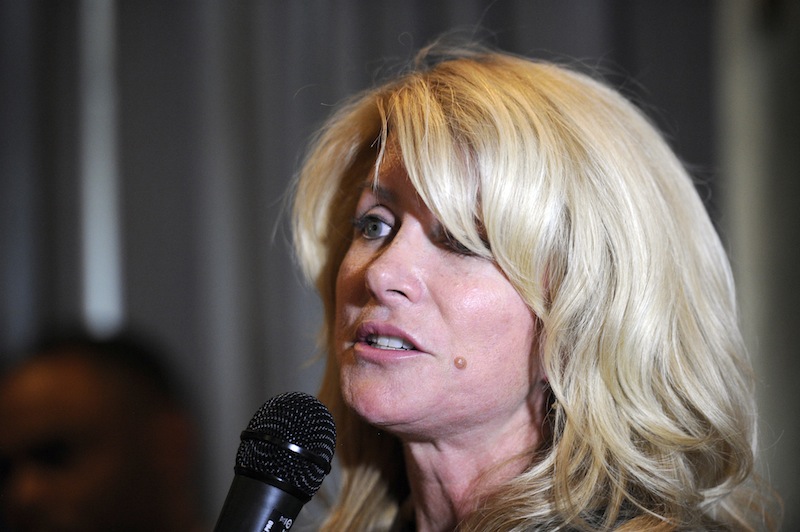Texas’ controversial new voter identification law — which has already attracted a lawsuit from the Department of Justice — might just give a step up to gubernatorial candidate state Sen. Wendy Davis (D), who Democrats hope will be the first Democrat elected to the Texas governor’s mansion since Ann Richards in 1991.
In Texas, the law asks voters to verify their identity with a photo ID (qualifying documents include a driver’s license, state-issued voter ID certificate, Texas photo ID, concealed cary handgun license, military ID, citizenship certificate or a passport) to match a pre-approved list of voters.
Many voters-rights groups have recently complained about the new barriers to voting, which critics say can actually prevent poor and young voters from accessing their right to vote. Surprisingly, the group of disenfranchised voters may also include married women who change their names to match their husbands’ when they get married. Married women tend to vote more conservative than unmarried women.
Davis herself reportedly had to sign an affidavit testifying to her identity when she arrived in Fort Worth for early voting on Monday. (Davis changed her name from Wendy Russell when she married her ex-husband, Jeff Davis, whom she divorced in 2005.)
The hope among Davis supporters is that the Texas voter ID law will actually motivate women to vote Democratic, even if they weren’t likely to in the first place. Jessica McIntosh, communications director for the pro-woman, pro-Democratic fundraising group EMILY’s List, said that women are taking note of the voter ID law and how they create new barriers to voting and “are going to see through it.” She said the law is likely to push more women voters in places like Texas and elsewhere to vote for Democrats.
“I mean that’s…historically where women voters are going and I think it’s pretty obvious because of the regressive agenda that Republicans are pushing,” McIntosh said.
The Democratic Governors Association have slammed the law as a direct attack at both Davis and women voters in Texas.
“Texas Governor Rick Perry’s voter ID law is a blatant effort to defeat Wendy Davis by disenfranchising tens of thousands of women voters,” Democratic Governors Association senior adviser and spokeswoman Lis Smith wrote in a recent fundraising email a week earlier. “Gov. Perry and his handpicked successor, Greg Abbott, are trying to undo the voting rights women fought for – a century ago! It’s downright anti-democratic. If Wendy had been Texas’ governor, she would have stopped it cold.”
But as Slate’s Dahlia Lithwick recently noted, through talking to a number of election law experts, there’s reason to believe that the law would actually disenfranchise more conservative women more than liberal men who change their names tend to fall on the more conservative side of the political spectrum. This is particularly important in a southern red states like Texas where divorce and remarriage rates are much higher than the rest of the country.
Matt Angle, who runs the Lone Star Project in Texas and serves as an adviser to Davis, said that one of the goals with the law has been to hit women voters. He added, though, that the new Texas voting law could make conservative women voters pause before casting their vote.
Republicans in charge of voting at the county level “know that for every one or two Republican women they turn away, they can turn away many more potential Democrats,” Angle told TPM on Monday. “Now, that being said I would hope and you would think that there may be some Republican women who raise objections to it.”
Angle added that perhaps Republican women could “create enough stink” over the new barriers to voting caused by the law to put pressure on Republican politicians, but he wasn’t optimistic that it would actually change the party’s views on Voter ID. He expected Republicans to stay in lock step in support of the new restrictions.






